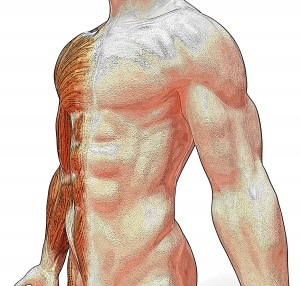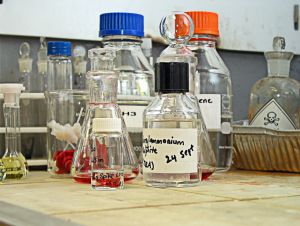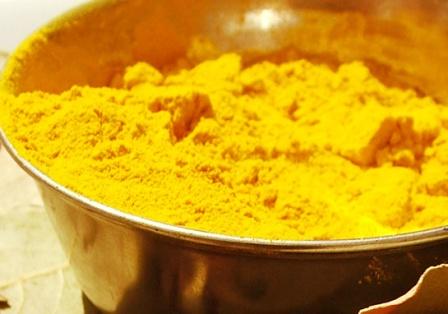"It's the most important molecule you need to stay healthy and prevent disease --
yet you've probably never heard of it. It's the secret to prevent aging, cancer, heart disease, dementia and more, and necessary to treat everything from autism to Alzheimer's disease. There are more than 89,000 medical articles about it -- but your doctor doesn't know how address the epidemic deficiency of this critical life-giving molecule ...
GLUTATHIONE (pronounced "gloota-thigh-own") is a master detoxifier and maestro of the immune system. The highest concentration of glutathione is found in the liver, making it critically important in the detoxification and elimination of free radicals. Accumulation of these dangerous compounds can result in oxidative stress, which occurs when the generation of free radicals in the body exceeds the body’s ability to neutralize and eliminate them.
How Should Glutathione Be Taken?
Unfortunately the BEST way to get supplemental glutathione into our system is through intravenous therapy. Glutathione is probably not well absorbed into the body when taken by mouth. A more practical solution is to take the precursors -- that is, the molecules the body needs to make glutathione -- rather than glutathione itself. While there is no solid proof this works, the consensus among experts is that doing so will increase the amount of glutathione in the cells.
"The good news is that your body produces its own glutathione. The bad news is that poor diet, pollution, toxins, medications, stress, trauma, aging, infections and radiation all deplete your glutathione. This leaves you susceptible to unrestrained cell disintegration from oxidative stress, free radicals, infections and cancer. And your liver gets overloaded and damaged, making it unable to do its job of detoxification.
“At first I thought that this was just a coincidental finding, but over the years I have come to realize that our ability to produce and maintain a high level of glutathione is critical to recovery from nearly all chronic illness -- and to preventing disease and maintaining optimal health and performance. " from Dr. Mark Hyman's blog .. read more here.
Glutathione: New Supplement on the Block
Gustavo Bounous, MD, is director of research and development at Immunotec and a retired professor of surgery at McGill University in Montreal, Canada. "It's the [body's] most important antioxidant because it's within the cell."
Antioxidants -- the most well-known of which are vitamins C and E -- are important for good health because they neutralize free radicals, which can build up in cells and cause damage.
Glutathione occurs naturally in many foods, and people who eat well probably have enough in their diets, says Dean Jones, PhD, professor of biochemistry and director of nutritional health sciences at Emory University in Atlanta. Those with diets high in fresh fruits and vegetables and freshly prepared meats are most likely just fine. On the other hand, those with poor diets may get too little.
Appleton is Chairman of the Department of Nutrition at the National College of Naturopathic Medicine in Portland, Ore., and senior science editor for Healthnotes, a database on complementary and alternative medicine available at newspaper stands and health food stores.
"If you look in a hospital situation at people who have cancer, AIDS, or other very serious disease, almost invariably they are depleted in glutathione," says Appleton. "The reasons for this are not completely understood, but we do know that glutathione is extremely important for maintaining intracellular health."
Bounous has developed a glutathione-enhancing product called Immunocal, which is made up of glutathione precursors, mainly the amino acid cysteine.
Who Does Glutathione Help?
Animal and laboratory studies have demonstrated that glutathione has the potential to fight almost any disease, particularly those associated with aging, since free radical damage is the cause of many of the diseases of old age.
"Theoretically, there are many very strong arguments in favor of a therapeutic use of glutathione," says Appleton. "But when people have actually tried to use glutathione as an oral supplement, nasal spray, or intravenously, the results have been more of a preliminary nature. The amount of research on glutathione as a supplement ... is very limited."
The best studies have been conducted in cancer. One study involved women with ovarian cancer who were being treated with chemotherapy. Some of the women were also treated with intravenous glutathione. Those given the glutathione not only had fewer side effects from the chemotherapy but also had better overall survival rates.
Case Study
Myriam Abalain of Montreal, Canada, is one of the many people who have taken Bounous's Immunocal to combat cancer. In 1996, at age 33, a routine PAP smear revealed she had precancerous cells on her cervix, which is one step away from having cervical cancer. The three specialists she visited all told her that a hysterectomy was her only option, but she hesitated to have such major, life-altering surgery.
Instead, she waited. For more than two years, her condition remained stable. Then a friend suggested she try Immunocal. After eight months of taking the supplement, her physician could no longer detect any precancerous cells. Does this mean Immunocal cured her? It's hard to say based on just one case like hers. It is possible her body went into remission naturally.
Even Bounous acknowledges there's no real proof his product cured her cancer, but he's working on conducting good clinical research, comparing individuals with cancer taking glutathione to those who are not.
What Are the Risks?
Overall, taking glutathione or its precursors in reasonable amounts appears to be quite safe, although it should be avoided in people with milk protein allergies and in those who have received an organ transplant.
Appleton recognizes this possibility but says "there's no evidence that supplementing with glutathione, even intravenously, is in any way going to make any cancer worse. In fact, the evidence we have suggests the opposite."
The upshot? The experts disagree on who should take glutathione or its precursors. Bounous says everyone should take it in order to optimize overall health. Appleton would reserve it for people with cancer. Jones says it might only prove beneficial for those who eat poorly and are thus unlikely to be getting much glutathione or its precursors in their diet.
They all acknowledge that people with severe diseases known to be associated with low glutathione levels, such as AIDS, may well benefit from the supplement, although there is no proof to this effect.
For her part, Myriam Abalain is still taking Immunocal and feeling fine. "I'm doing pretty
Talk to your doctor about Glutathione treatment, especially if you are in Chemotherapy.
Be Well. ♥








